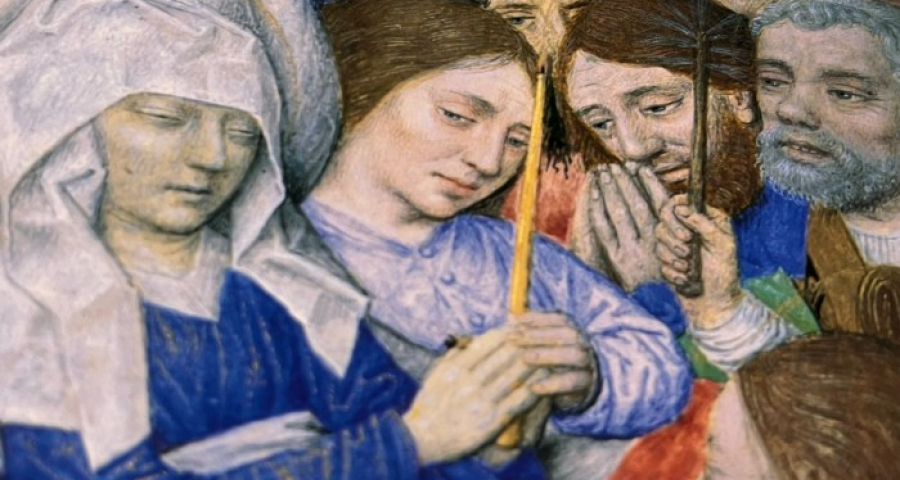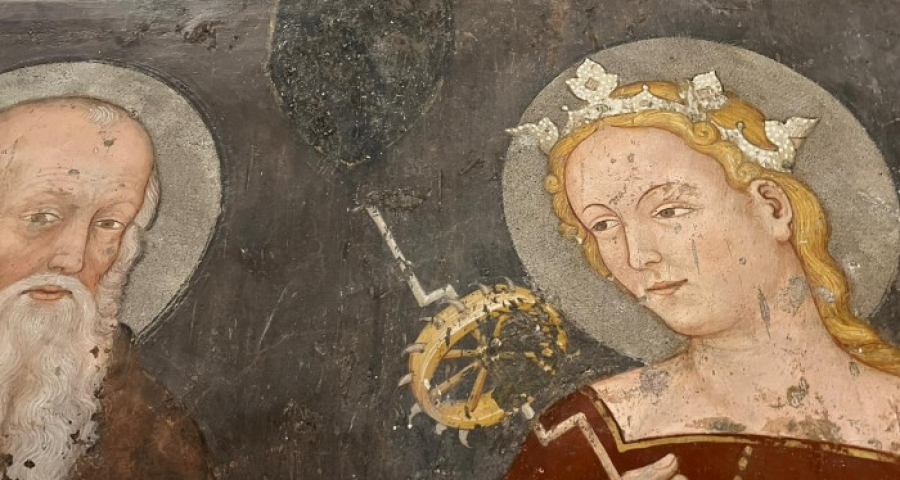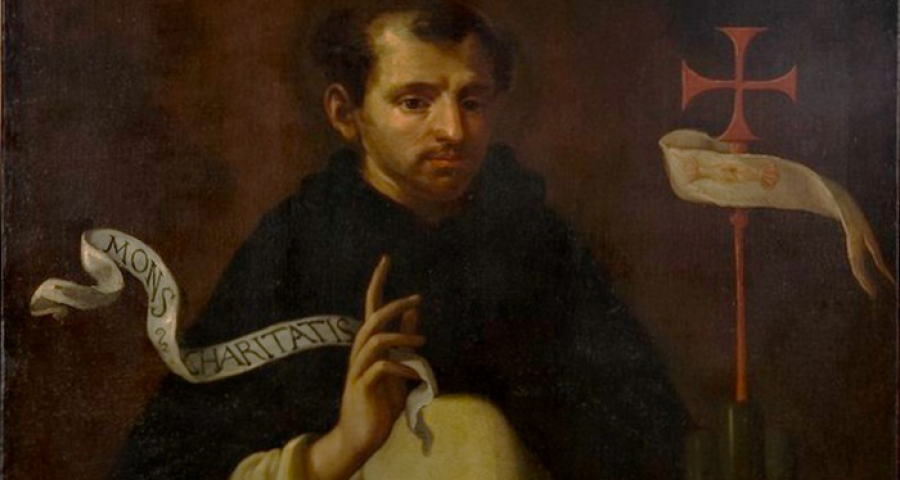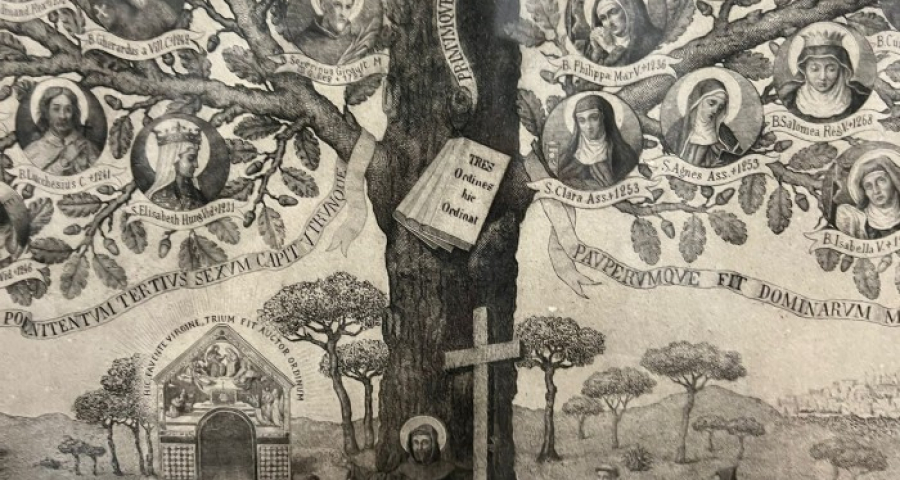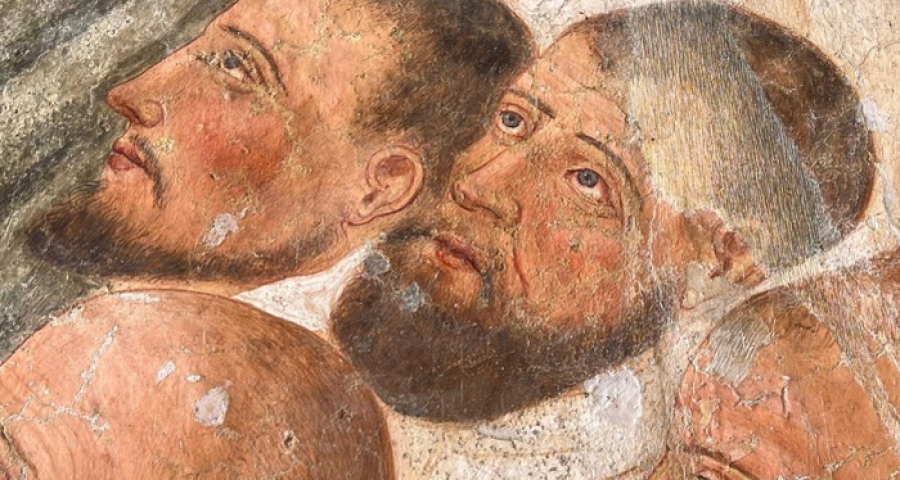The land of We/6 - The Neapolitan Civil Economy of the eighteenth century and Francesco Fuoco
by Luigino Bruni
published in Avvenire on 28/10/2023
The idea that exchange is a ‘game’ where the gains of one party are equal and opposite to the losses of the other, is often the first difficulty that a teacher encounters in the first lessons of economics. Students approach economic science with the belief that the market is a place of ‘zero-sum’ (+1/-1) relationships. It is difficult to convey the idea that in economic exchange the golden law is mutual advantage and therefore the gains of one party also correspond to gains for the other and when this mutual advantage does not occur, the market is distorted and denied and ends up resembling war, robbery or athletics (the sports metaphor for the economy is almost always wrong). Behind the bad reputation that economic operators have enjoyed for centuries, was the same mistake that my students make today. If the market is really a relationship where one party enriches itself at the expense of the other, it becomes necessary to protect the weak party, restrict the area of exchanges and then view merchants and bankers with great ethical distrust. Religious prohibitions on interest-bearing loans only reinforced a negativity that already existed. Merchants and economic and financial operators were well aware that the market was a ‘positive sum game’; they knew this because it was based on contracts, which when carried out in freedom reveal the mutually beneficial nature of the parties - why should I give my free consent to a predatory relationship? In the same way, they knew that the mutual advantage was often asymmetrical (+4, +1) due to different information and power balances. However, when the contract generated a minus somewhere (+2,-1), they knew that they were exiting the economy and entering into theft, leaving behind physiology and entering into the pathology of the market.
The real problem lay elsewhere, that is, above all among theologians and philosophers. Those who wrote about prices, markets or interests were for the most part intellectuals who (with the happy exception of the Franciscans and some Dominicans) preached about trade and business without having, in general, the faintest idea of what real markets, real loans, real contracts, real shops and entrepreneurs were (a problem that, in part, still exists). And so the idea was superior to reality and the moral treatises and manuals for confessors described a commercial world that was distorted and distant from the real lives of people. So much so that while treaties against trade and usury multiplied, the Middle Ages was filled with tens of thousands of Christian bankers and merchants, who made profits, took and lent with usury and made our cities beautiful.
Describing the great spread of usury in Italy in the thirteenth and fourteenth centuries, A.L. Muratori recalls that loans with interest were provided for in the statutes of the cities, where often there was even a public register of usurers. Muratori cited a document from 1339 which said, "No person in Siena could lend with usury in anyway, if he does not first register in the book entitled Usuraio of Bischerna" (Opera Omnia, 1790[1738-1743], XVI, p. 310). The ‘Bischerna’ was the ancient legal system. He continued: "Whoever lent with usury, gave the loan for only six months and whoever received the money, contributed with a gift to the usurer; that is, he paid the fruit of the six months immediately". After the six months, "if the debtor did not pay, the interest that the debtor was then obliged to pay was a quarter of a penny for each lira for each single month" (p. 311), that is, 4% per month which was equal to almost 50% per year (and this explains why the 5% per year on loans from the Monte di Pietà was really a non-profit institution rate). The language is striking: there was talk of a gift to the usurer, because presenting the interest as a gift made it easier to circumvent ecclesiastical prohibitions against usury. However, every merchant knew that the reality was very different from the words with which it was expressed and that the idea of gift had nothing to do with it. Eloquent expressions are the first casualties when reality drifts away from the concept of reality. Thus, until recently, hypocrisy and double standards flourished as the fertile ground for merchants and bankers from the Middle Ages.
After centuries, theologians of the Counter-Reformation perpetuated a civil hypocrisy by reinstating ancient and abstract prohibitions on profits and usury, which had been largely overcome by the Franciscans and merchants between the thirteenth and sixteenth centuries. In the seventeenth century, a widening gap and mutual distrust developed between the economic and ecclesiastical worlds, including the very Christian bankers of the Popes. Religion became a matter for worship and feasts, for fraternities and processions, for births and deaths, for wives and women, but merchants and bankers kept well away from the confessionals and sermons. Among the many counter-reformist preachers and theologians, the Jesuit Paolo Segneri (1624-1694) stands out. He was a respected literary figure (he collaborated on the third edition of the Vocabolario della Crusca) and the author of many manuals for confessors and treatises on morals. The most famous of these is The Christian instructed according to his law, from 1686, in which he criticized merchants harshly saying, "by selling things in credit to the poor, they then give them this privilege, that since they have no money they pay more for it". So credit-credit is a scam created by the seller for the sole purpose of increasing his earnings at the expense of the poor. And he adds: "I know that merchants defend themselves with those very precious titles of ‘loss of profit’ and ‘emerging damage’..., but I really think that they often use them as a simple hook to forcibly gather the fruits that they are unable to reach by hand" (Ed. Veneziana, Carlo Todero, 1765, vol. 1, p. 207). These elegant phrases really reveal a low moral picture of the market, carried out in dark shops: "The buyer seeks illegal advantages, either in the unfair price he offers or in the weakness of the currency. The seller tries to hide the defects of the merchandise he displays and when questioned does not reveal them otherwise, artfully choosing dark shops so they are less visible" (p. 209). Then he continues with his doubts (which are really certainties): "I think, that often this great danger they have learned, of not being paid by selling in time will occur because they often want the Mallevadore [guarantor]; and as if the Mallevadore is not enough, they want a pledge" (p. 207). It is clear that here Segneri speaks of merchants but also of bankers, who in the ancient regime were often the same people. And he concludes: "It is very difficult to negotiate a lot and not harm others’ shops" (p. 208). Finally, the idea of exchange as a ‘zero-sum game’ emerges very clearly: "In every contract between purchase and sale, sin stands in the way, like a stake stuck between the walls... Almost as if the injustice between those two terms is so limited that even if you want to, you cannot go free. On one side it is held strong by the buyer and on the other it is held strong by the seller" (p. 208).
It should therefore not surprise us, given this dominant idea regarding trade and credit, that neither the word entrepreneur nor bank appears in our beautiful Italian Constitution.
The Neapolitan and Italian civil economy was born in the eighteenth century with a different idea of market and credit. We have already seen it with Genovesi, and now we see it with one of his heirs, the Casertan (Mignano) Francesco Fuoco (1774-1841). Fuoco, now forgotten in his own homeland, was an extremely original, at times brilliant, author. Priest, Neapolitan revolutionary of 1799, teacher, mathematician, physicist, Latin geographer and philologist in the first phase of his activity, he then became an economist following his French political confinement (1821-23), where he studied with the great economist J.B. Say. In this French phase he began his complicated collaboration with the Como businessman Giuseppe de Welz, for whom he wrote, perhaps out of economic necessity, his first works on economics and finance (which were published by de Welz: an attribution dispute that has not yet been fully resolved). They include the book The Magic of Credit Unveiled (1824), where we find an innovative and sometimes surprising theory of credit and banking. His point of reference is Antonio Genovesi, of whom he cites extensive passages in his Economic Essays (1825-27), where, among other things, speaking of maxima and minima in economics (Fuoco is one of the first mathematical economists), he writes: "The notion of minimum wage is the point at which the worker refuses to work due to insufficient wages" (Vol. II, p. 11), to remind us that the minimum wage is anything but a recent or bizarre issue.
In the introduction to The Magic of Credit, Fuoco begins by saying that he came across a thesis by a French author so bizarre as to seem at first delirious: "Whoever has the talent to contract debts possesses the art of becoming rich" (p. 1). The possible delirium arose from the memory, of which, as a fine writer, Fuoco was very well aware, of satirical texts such as Il debitor felice, by Ser Muzio Petroni da Trevi who at the end of the 1500s affirmed that "you cannot give yourself greater happiness in this life than having debts", and praised those who lived without working, making others work for themselves. Clearly the praise of credit (not so much of debt) that Fuoco shares had very different and opposite roots.
A few years later, in his Economic Essays he wrote pages of great beauty and relevance on credit: "The means that give maximum energy to the work of a people are created and multiplied by virtue of credit and credit is strengthened to the extent that work is perfected" (II, p. 395). He therefore speaks of an “alliance between work and credit", based on mutual advantage, essential for public happiness. An alliance he calls ‘intimate’, thanks to which "morality spreads".
As for the interest on the loan, for Fuoco "nothing is fairer than receiving compensation from the loan" (p. 397). Quoting Genovesi at length, "to whom we could add nothing better", he concludes by saying that "capital is a sterile wealth when it is not used for productive purposes, that is, for any branch of industry. Therefore, lending is a necessary condition to turn capital to productive uses” (II, p. 415).
The conclusion of his reasoning is very beautiful: "The creation and use of capital rests on credit and therefore on morality which was and will always be its foundation. If the principles of morality were generally recognized and respected, credit alone would be enough to give life to the general economy of peoples" (II, p. 416). An economy therefore of credit alone, an economy of pure credit, a market of faith alone. Today it seems like a utopia of yesterday: what if it were instead a prophecy of tomorrow?







